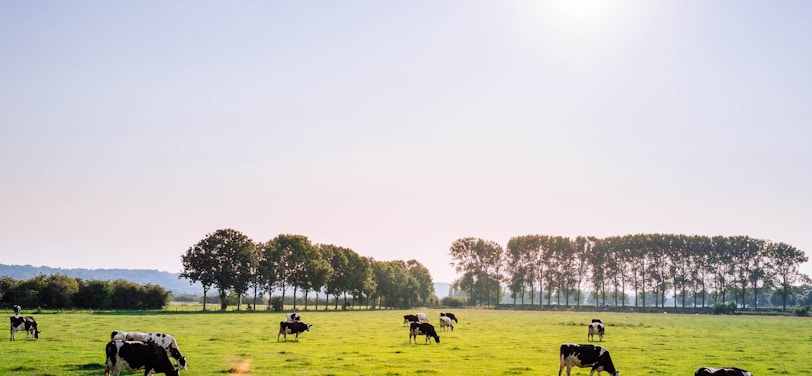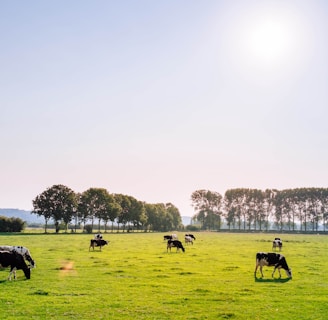Farming Case Study Nº32
1/9/20243 min read


This is a rather extreme case that came to us when the farmer was already in some considerable trouble. He was not a client at this point but was introduced via an IFA who was a friend and advisor to the family. The current farmer was in his mid thirties but had recently suffered a mild cardiac arrest which had left him in hospital with time to think about the mounting pressure that he as a sole trader was under. He had over extended himself with credit finance on cattle, machinery and a milking parlour. Each month saw him scrambling and failing to make payments all payments. He worried what would occur if something far graver happened to him with this in mind he looked for the best solution to his problem. Little knowing that far greater problems were on the horizon.
The dairy farm had been in the family for four generations, with the grandmother and uncle of the current farmer still living on houses on the land. As we began discussing the needs of him and his family, the price of milk plummeted, severely denting the monthly income of the farm. As a father of three sons and only recently discharged from the hospital we moved quickly to ring fence his assets for future generations.
Assets:
Farm land and house (folio 1)
Farm land (folio 2)
Grandparents house and land (folio 3)
Solution:
Create new trading company
Create family Investment Company (FIC) with articles of association written by our barrister.
Create a discretionary trusts to hold the future value of the farm via the ‘Growth’ shares in the FIC company
Create a 2nd discretionary trust to hold the Grandparents property in trust for the great-grandchildren with God parents as trustees.
Shares categories in the investment company:
A - Nominal value common shares with all the voting rights
B - Redeemable preference shares equal to the existing value
C - Redeemable preference shares to convert the unsecured family loans into equity
D - Growth Shares that capture/hold the future gains in the value of the farm.
These different share categories are held by different people and in different entities preventing the sole trader being attacked for unsecured debt
Grandparent’s houses equity (£200,000 value -£60,000 mortgage = £140,000) is gifted to the children via Trust, with the grandparents having lifetime tenancy.
The Farm house and lands are incorporated into a Family Investment Company (FIC) in exchange for shares equal to the equity (£1.6m - £0.9m mortgage = £0.7m).
The farmer as sole trader rents 50% of the farm from the FIC to cover the mortgage with the sole trader still responsible to repay the unsecured creditors via current herd.
2 x £500k Life insurance policies to repay the mortgage on behalf of the farmer and his wife.
During that year a string of events caused the farmer to make catastrophic decisions. Each bad mistake was then compounded again and again. Milk prices continued to plummet. A visit by DEFRA has placed his herd under restrictions and took a number of his cattle to be slaughtered. Due to this he attempted to replace the cattle in a bid to maintain the milk payments that he so desperately needed. DEFRA refused. He purchased cattle and kept them on land not under restriction but the cattle were stolen before they were insured. The creditors letters were now piling in. Rather than use all the money received from DEFRA for the cattle taken away to pay the creditors the farmer was forced to use it pay family bills. Within a month the termination notice from one lender and aggressive reclamation letters from another were arriving. Weeks after that termination letters were issued and a court case loomed. One creditor immediately applied for a court judgement while the other approached the matter by requesting all information relating to the farmers personal estate.
One further creditor has to be mentioned, the mortgage provider and as mortgage payments had been maintained without fail and the only lender with a charge over the property was said mortgage provider. Therefore the structure that was in place now presented a conundrum for the unsecure creditors to the sole trader. The farmer did not dispute that he owed the two lenders. However his personal assets were minimal, all assets were held in investment companies or in trust. The first creditor was granted the court judgement in their favour however with no tangible assets to attack they were forced to negotiate a payment plan.
The second creditor had realised the futility of pursuing through the court and agreed and initially low figure to accept on a monthly basis and the farmer began paying. Three months into the payments this creditor requested a review of the farmers personal income and expenditure however after some discussions the original agreement was honoured.
A new subsidiary company was formed under the FIC, with a new herd number and rented the other 50% of the farm. This allowed family members to invest into the farm, increasing the farmers annual income to pay down his unsecured creditors in annual lump sums via dividends from the FIC.
The end result was the farmer kept his farm, his herd and his livelihood with the unsecured creditors paid off over 5 years.